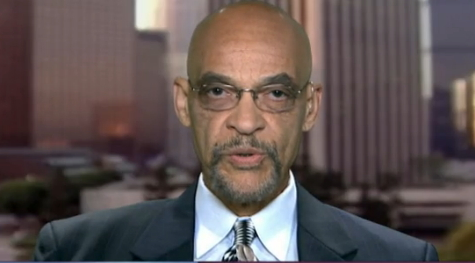Earl Ofari Hutchinson
The multi count indictment of veteran Ninth District Los Angeles City Councilman Curren Price on varied corruption charges was a surprise, and not a surprise to many. First the surprise. Price is widely regarded as a business like, efficient, and knowledgeable political operator. He gets high marks for his efficient managing of the various council committees he serves on and chairs.
He gets equally high marks from many district residents for revitalizing businesses and securing low cost and senior housing projects for the district.
Now here is why there is no surprise at his indictment. In the past decade a parade of city councilpersons has been indicted, convicted, or ousted from the council on corruption charges. Price’s long tenure on the council made him a prime candidate for coming under public and especially legal scrutiny.
The major problem that Price and the other council members have who are in the public and prosecutor’s eye is their long standing borderline legal wheel and deal making with developers. This has virtually put a sign on City Hall –“for sale.” The temptation of cutting deals with developers and then lining their pockets with their money is just too enticing for some to say no to.
Now that Price is the latest to take the corruption charge nosedive, the question that is repeatedly asked is why does this malfeasance continue? The Los Angeles City Council is the highest paid in the country. Council members get loads of perks, and virtually pay for nothing. Yet it is slammed as one of the most corrupt and greedy in the country?
Invariably, when there is a fresh scandal council members scream loudly that they have taken lots of steps to eliminate corruption, graft, and political favoritism. They call for expanding the council, stripping the council of the power to juggle districts, ban lobbyists from the council chambers, and get the council out of the sweetheart deal making with developers. These are common sense proposals that should have been implemented years ago.
However, even implementing these proposals has not changed the way the council does business. The brute reality is that the council has made corruption, wasted time, dysfunctionality, and plain ineffectiveness an institution. The reason is simple there is no requirement or demand from the reformers for the two words and actions that would radically overhaul the way the city council or any other legislative body should do and act.
That is the demand for one hundred percent transparency and accountability by council members to those who put them in office. Let us take transparency first. All politicians pay lip service to it. They profess that they are transparent with their constituents. Transparency means more than just sending out an occasional online newsletter (some do not even bother with that) or having an occasional town hall to let residents and stakeholders’ gripe, complain and blow off steam.
It requires total openness on the two most crucial areas in city government. The first is how taxpayer dollars are spent. Residents pay lots of taxes and the city collects lots of revenue. The council determines how that money is spent. But how many residents and stakeholders know where the money goes—their money? How many residents and stakeholders are ever consulted about spending decisions? How many residents and stakeholders are even informed before or after the fact where their money goes and for what? The answer is none.
The simple requirement should be that no spending decisions be made district wide or city wide before, during and after direct consultation and input from varied stakeholders in the district. That should be mandatory. This reform requires much more than simply focusing on the one area that gets the councilpersons repeatedly in legal hot water. That is their cozy sweetheart, give away the company store, play for pay antic with big developers.
This reform strikes to the heart of democratic decision making and citizen engagement on all spending that directly affects constituents. The thing to remember is their dollars, not the councils, which is at stake. One glaring example of the closed door in the dark spending of the city council, which has near mortally wounded L.A., and taxpayers is the never-ending surge in homelessness that makes L.A. streets look like Kolkata (Calcutta).
Now for accountability. L.A. politicians, like all politicians again pay much lip service to it. And, as with transparency, few really mean it let alone welcome it. If that were the case, they would continually inform their constituents, residents, and stakeholders on all proposals debated and discussed at every city council meeting and in committee meetings on vital public policy issues. There would be no cozy executive sessions to which the public is totally barred from where the crucial decisions on spending and public policy are made. There is zero public input or knowledge of these decisions until after the fact—if then. Executive sessions are the favorite time-worn ploy the city council uses to maintain opaqueness, mystery, secrecy, and self-aggrandizement.
Price, then, is only the latest to fall victim to the penchant for behind closed-door sweetheart deal making that has been the trademark of the L. A. City Council. Sadly, without real reform to end the grip of corporate grip on the council, he will not be the last.
Earl Ofari Hutchinson is an author and political analyst. His latest book is Reparations! (Middle Passage Press). He is the host of the weekly Hutchinson Report on KPFK 90.7 FM Los Angeles and the Pacifica Network. He is the publisher of thehutchinsonreport.net
Visit Hutchinsonlegacybooks.com

